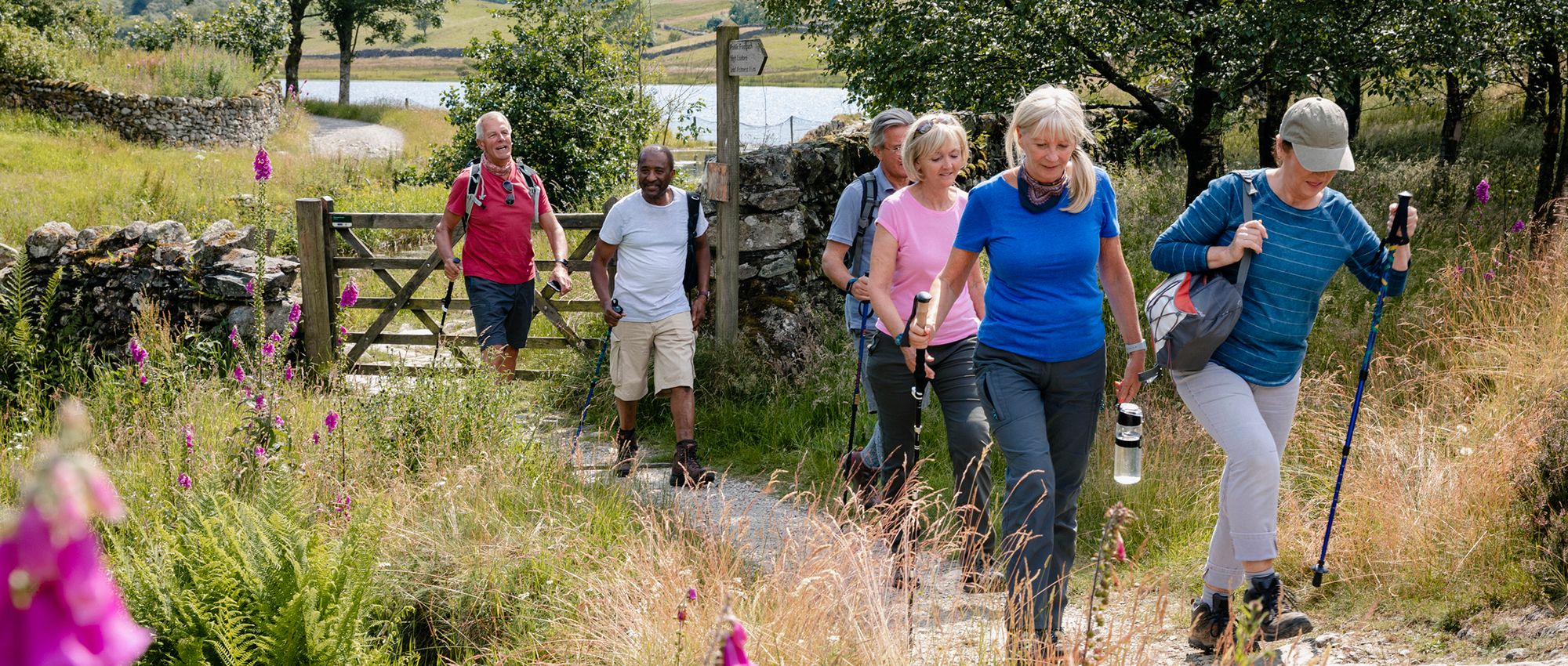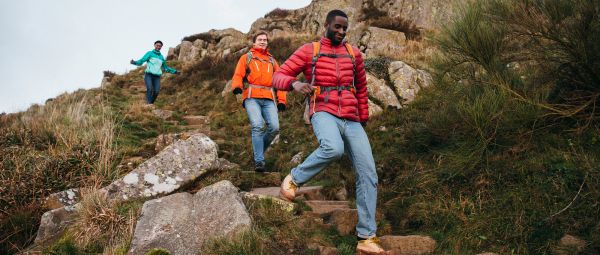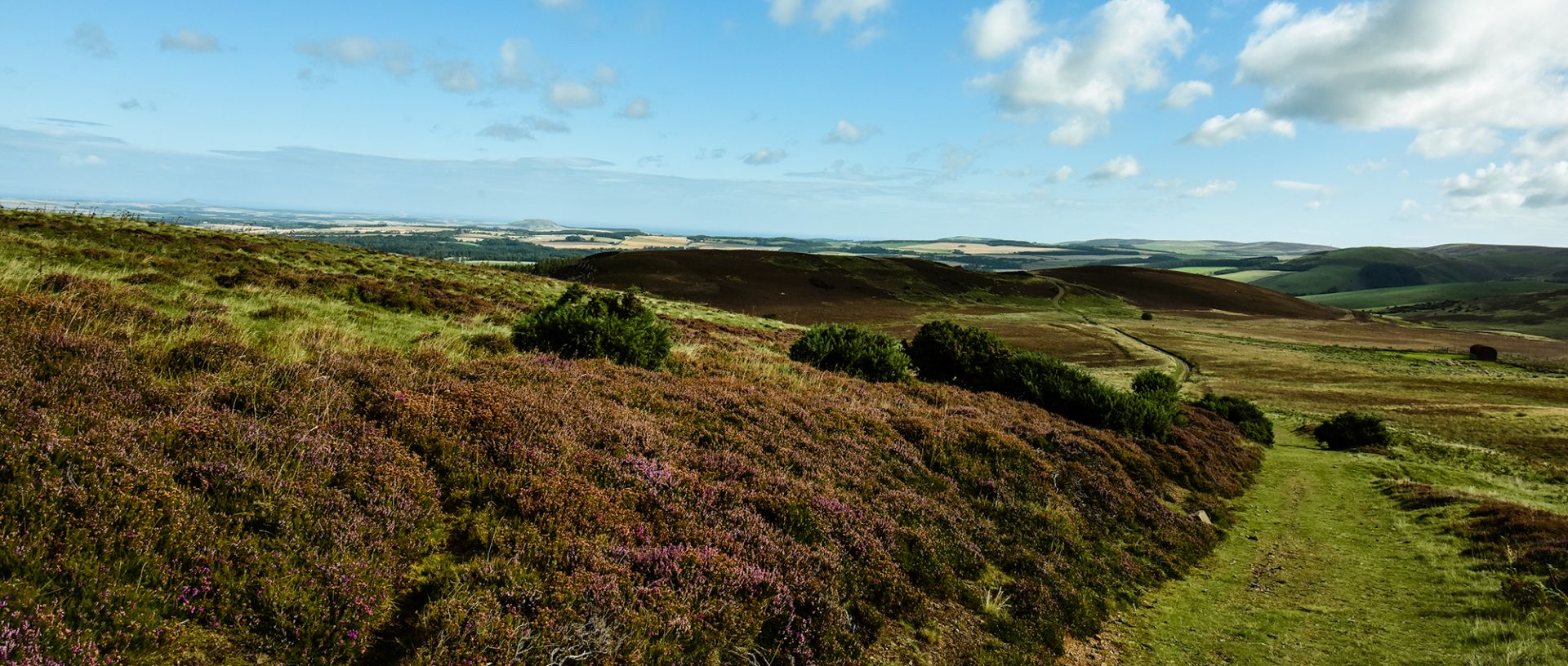How walking can boost your health
Discover how walking can reward with huge health benefits including a boost in mood

Why should I walk?
For one thing, walking could help you live a longer, healthier and happier life. It’s an easy, accessible and enjoyable way to reduce the risks of heart disease, Type 2 diabetes, dementia, stroke and cancers. It can even help treat these conditions. It’s simple, free and one of the most straightforward ways to get more active, lose weight and become healthier.
Ambling in a group also means getting social, reducing isolation and improving mental health. Walking outdoors is a natural mood-booster.
In other words: walking is fun as well as healthy!
What are the health benefits?
Walking briskly can help anyone build stamina, burn excess calories and make your heart healthier.
There are known benefits for specific conditions too. Taking a regular walk could help reduce your asthma symptoms. It increases lung capacity, strengthens the immune system and helps maintain a healthy weight.
People living with cancer can benefit too. Getting up and active during treatment can help prevent blood clots, minimise muscle wasting and boost mood. And walking can help reduce lymphoedema and fatigue, as well as strengthening bones and the heart, reducing body fat and boosting wellbeing.
For people living with dementia, walking may slow mental decline as well as supporting memory retention. Getting active can slow the progress of Type 2 diabetes and help prevent long-term complications. It can also significantly improve heart health, speed up recovery and even prevent future heart problems. And among pregnant women, walking can help reduce the risk of morning sickness, constipation, cramps and varicose veins.
Walking can help address problems such as obesity, sleeplessness and pain. Research shows that walking can help improve mental health, too, combatting loneliness and helping people feel connected within communities.
Regular walking can make a big difference, as Barry, a Ramblers member reports. “In 2007, unexpectedly, I had a heart attack whilst out walking my dog,” says Barry. “It was a bit of a ‘yellow card’ about taking overall good care of myself, but I think the fact that I have always been a walker contributed to my recovery, and two years later I was able to climb Snowdon. Walking helped me keep a positive mental attitude and outlook.

How do I start?
The first step is simply making the choice to get started. You don’t need to walk far or fast to feel the effects on your health and wellbeing.
Also remember that you don’t need to be very fit or have lots of outdoor experience to start walking regularly. You could try incorporating walking into your daily routine. For example, try making it part of your journey to work. Or go for a stroll with family or friends at the weekend or after dinner. That way, it’s fun for all of you.
Begin with short, comfortably paced walks, taking plenty of breaks, then build up speed, distance and duration. If you’re walking alone, try listening to music or a podcast as a distraction. It can create a rhythm to help you walk faster too.
What do I need?
Not much! To start, comfortable shoes or trainers that provide adequate support and don’t cause blisters will do for shorter strolls. As you begin walking farther and for longer, you might want to invest in specialist walking shoes and waterproofs. Eventually, you might carry a small backpack with water, healthy snacks, a warm layer, and sunscreen and a hat, if needed. But that’s for later.
How far should I walk?
The UK’s Chief Medical Officers recommend that adults should undertake at least 150 minutes of moderate physical activity such as walking each week. That doesn’t mean hiking for hours at a time. Even one 10-minute daily walk is beneficial. Better still, treat yourself to a brisk 30-minute walk on five days each week. (A ‘brisk’ walking pace is about 3 miles per hour.)
A great way to get started is by joining a Ramblers Wellbeing Walk. Trained leaders help you take your first steps towards being more active. And you’ll get to meet other people walking for their own reasons, perhaps to ward off illness, manage health conditions or boost wellbeing. Who doesn’t enjoy exercise more with friends?

I live with a health condition – is it wise for me to start walking?
You should speak to your doctor or specialist health professional about your condition before starting any new fitness activity. But as we’ve seen, getting active a few times a week can help manage chronic conditions and reduce symptoms. Walking is an ideal activity for people who are very unfit, or who have certain disabilities and physical limitations. It’s easy to start with slow, short walks and build up gradually. Just remember to prepare each time. For example, if you have asthma, use your breather-inhaler before setting out.
You can find lots more advice and information on walking with health conditions.
What are Ramblers Wellbeing Walks?
To make it easier to start walking and stay active, we’ve created a network of free health walk groups across England. Each of our short group walks is led by an experienced Ramblers Wellbeing Walks leader. And every one follows tried-and-tested routes that are easily accessible on foot or by public transport. Because you’ll be walking with others you’ll feel safe, be supported and have fun along the way. Everyone stays together during the walk, so you don’t need to worry about being left behind. You can be sure of the warmest of welcomes, too!
Don’t worry about your fitness level: all walks are over easy terrain and at a steady pace to suit everyone. They’re short, starting at 30 minutes and never longer than 90 minutes. Mobility limitations aren’t an issue: routes are generally open to all. Contact the walk organiser to check whether an individual route is wheelchair-accessible.
“It’s not just about your physical health and mental health,” explains Ramblers member Jeanette. “If you make it fun, a walk is laughter and freedom in the fresh air with people who have a common goal. It is fabulous.”
Finding a Ramblers Wellbeing Walk is simple: simply search for planned walks on our website, along with advice and more information about walking for health.
All images © Getty
.jpg?itok=oWplmXJh)
Ramblers walking groups near me
With over 500 Ramblers groups right across Britain there’s probably one (or more) near you. Here’s how and why you should join one for a sociable stroll.

10 great British pub walks
Work up an appetite and a thirst with these gentle walks visiting some of Britain’s most memorable pubs.

Best forest walks in the Lake District
A woodland walk in the Lake District can offer autumn colours, spring flowers, winter shelter or summer shade. Try these top tree-lined strolls.

Campaign with us
We campaign to remove barriers to walking and we step up to protect the places we love to wander.